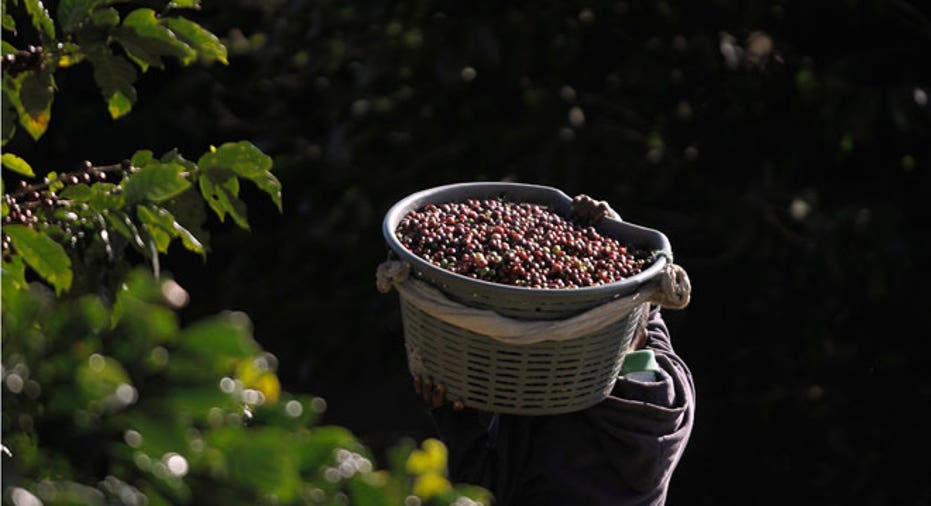Colombia Growers Open Miami Cafe to Revive Juan Valdez Brand

Colombian coffee growers, long represented by a fictional farmer named Juan Valdez with a mustache and wide-brimmed hat, opened a namesake coffee shop in downtown Miami on Monday, hoping to re-establish the brand in the high-end U.S. coffee market.
Procafecol, the Colombian company that manages the Juan Valdez brand that represents about 500,000 of the country's coffee producers, plans to open 60 franchises in Florida in the next five years. It is also looking toward markets with heavy Hispanic ties, like Texas and Southern California, and others with established coffee cultures that support high-end coffee shops, said Procafecol Chief Executive Hernan Méndez Bages.
The company is looking to tap an estimated $18 billion premium coffee market in the United States. It once owned a handful of stores in New York City, Seattle and Philadelphia but closed most, including one in Times Square, in 2010.
At the same time Starbucks Corp last week opened its first store in Colombia 43 years after the world's biggest coffee chain began buying beans from the country famous for its premium arabica coffee.
Juan Valdez Café will offer an array of Colombian coffees from the country's different growing regions along with Colombian pastries like pan de bono, a cheese-infused bread, and empanadas.
"This is becoming like the wine industry where you're pairing food, and consumers here in the U.S. are so willing to learn about coffee, how it's roasted, and the origin," said Alejandra Londoño, Juan Valdez's vice president of international business.
Though the company has 280 stores in 13 countries, primarily in Latin America, it faces an uphill battle in the high-end U.S. market dominated by Starbucks.
At the same time Colombian coffee growers have struggled to maintain production in recent years.
Heavy rains and a replanting program took many trees out of production and drastically cut the country's coffee crop in 2008. That was followed by four more below-average crop years in part due to a leaf rust disease outbreak. As a result, many U.S. dealers were forced to look elsewhere for high-quality arabica beans, causing Colombia to lose some loyal customers.
(By Zachary Fagenson; Additional reporting by Marcy Nicholson; Editing by David Adams, Lisa Baertlein and Eric Walsh)



















